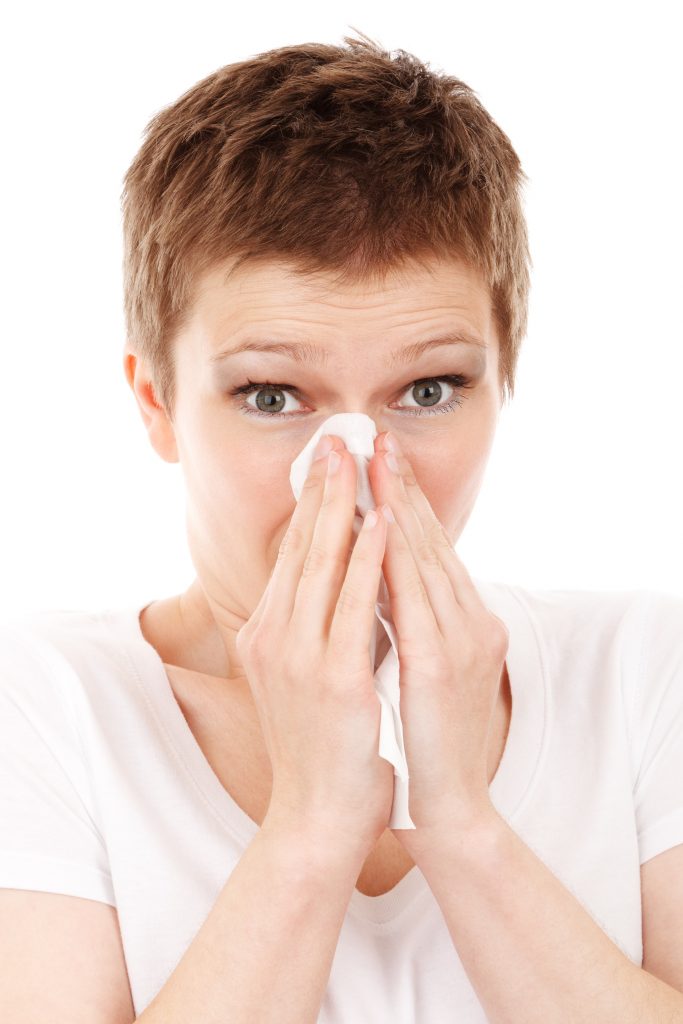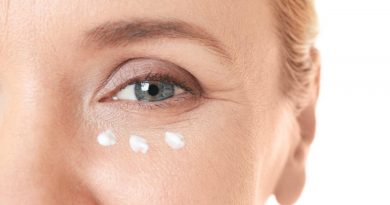Nighttime Allergy Relief
Image credit
Many allergy patients complain of increased symptoms at night. Research studies indicate that nearly three-quarters of allergy sufferers wake up at night due to allergy symptoms, while 90% of allergy sufferers have difficulty sleeping. While all types of allergies can exacerbate sleep problems, perhaps those with the most profound effects are nasal allergies and asthma.
Nighttime Allergy Symptoms
More than 50 million Americans, including more than 6 million children, suffer from asthma and allergic diseases like allergic rhinitis (hay fever), various food allergies, and eczema. According to the American College of Allergy, Asthma, and Immunology, more than 24 million suffer from asthma alone.
Causes of Nighttime Allergies
Pollen Rising at Night
Did you know that pollen levels rise throughout the night? Many people like to sleep with the windows open and enjoy the cool spring breezes (in the South) and fall breezes (in the Midwest), just when tree and grass pollens are ramping up at a regional level.
There’s an easy remedy for this–shut your windows! Keep those windows closed and run your air conditioning instead, using a premium filter to reduce any lingering allergens that may occur from routine opening and closing of windows and doors.
If you must have fresh air blowing through your home or don’t have an AC system, purchase a high-powered air purifier designed for allergy control.
Pets in Your Bedroom
In addition to their own dander, your dogs and cats can also carry multiple allergens with them. Dust mites, pollen, and other allergens can easily cling to their coats, creating a symphony of allergic triggers in your bed.
Again, there’s an easy answer. Let the pets have a comfortable place to sleep, just not in your own bedroom. If your pet is also your fur baby and can’t be separated from you at night, consider purchasing an irresistible pet bed and give your pet a piece of your clothing to sleep with at night.
You
Just as allergens like pollen and dust mites can cling to your pets, they can also cling to you. If you’ve ever done several hours of yard work during pollen season, you know first-hand how quickly you can be covered in yellow-green dust.
It’s important to remember that when pollen is heavy, it’s so easy to bring a lot of it into your home on your clothing, shoes, skin, and hair. If you’re outside for any length of time, it’s best to change your clothes and wash exposed areas and shower before going to bed.
Your Bedroom: Surfaces
For the same reasons you clean everywhere else, you need to pay particular attention to your bedroom. Failing to vacuum and maintain surfaces can leave your bedroom teeming with dust mites, bed bugs, pollen, pet dander, and a host of allergens.
The remedy for dirty bedrooms isn’t as easy–it takes lots of elbow grease, frequently, to keep your bedroom allergen-free. That means vacuuming, with a filter certified as allergy and asthmas-friendly (such as a HEPA filter), often multiple times a week, especially in high pollen seasons. Also, wiping surfaces, including flooring, molding, and walls with white vinegar will help eliminate allergens. If your room has humidity issues, you may need to run a dehumidifier to prevent mold, which can cause serious allergic reactions. Keeping humidity between 30-50 percent, while keeping the room temperature below 70 degrees, will help avoid mold growth and prevent dust mites from proliferating.
Before you get discouraged from the amount of work to be done, look for ways to delegate the workload to a professional cleaning team, family members, or teenagers who are eager to earn some extra cash. Read reviews on allergy products and purchase items that are sure to make a difference, like the Dyson Cinetic vacuum. Once a room has been thoroughly cleaned and allergens have been removed, quality of sleep will keep you motivated to stay on top of it.
Your Bedroom: Pillows, Mattress, and Bedding
Your bed is ground zero for allergy activity because we average six to 10 hours of sleep in our beds at night. Our bodies generate heat and moisture, and we shed dead skin, creating favorable conditions and a veritable buffet for dust mites and a host of allergen particles. When we combine these factors with lack of hygiene for our environments and heavier pollen counts and humidity that invites mold growth, chronic health problems await.
Thankfully, there are some easy measures to take with regard to our beds. First, you need to begin washing your sheets, pillowcases, and comforters regularly (at least weekly) in hot water exceeding 130 degrees. Next, make an investment in zippered encasements for your pillows, your mattress itself, as well as comforters and duvets.
Engineered fabrics like polyester and all-natural fabrics like cotton are used in high-performance bedding encasements, which can perhaps be the most effective step you can take in reducing the symptoms associated with nighttime allergies. Encasements are so good at their job of blocking allergens like dust mites due to their design and construction.
You’ll be surprised at how little great encasements actually cost compared with the return on investment–much better quality of life–and the fact that quality encasements will last the lifetime of the mattress and bedding they are tasked with protecting.
Conclusions
Allergens in our homes, especially in our bedrooms, can trigger allergic events, and worse still, they can create chronic health conditions like nasal rhinitis and heighten symptoms of more serious conditions like asthma. There are several measures you can take for a healthier, allergen-free nighttime environment in your home and the relief will be worth it in the long run. Some of these actions require investments in time and products, but research has proven them to be effective.
Of course, if your nighttime allergy symptoms persist, even after taking all of these measures, consult your physician for proper diagnosis and medical options.




